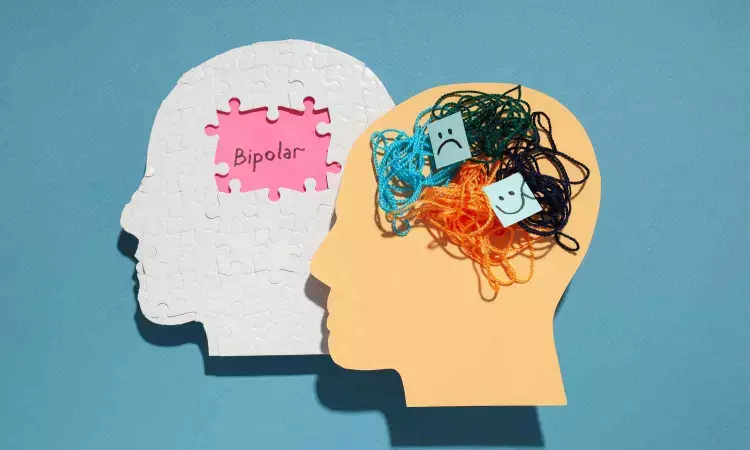- Home
- Medical news & Guidelines
- Anesthesiology
- Cardiology and CTVS
- Critical Care
- Dentistry
- Dermatology
- Diabetes and Endocrinology
- ENT
- Gastroenterology
- Medicine
- Nephrology
- Neurology
- Obstretics-Gynaecology
- Oncology
- Ophthalmology
- Orthopaedics
- Pediatrics-Neonatology
- Psychiatry
- Pulmonology
- Radiology
- Surgery
- Urology
- Laboratory Medicine
- Diet
- Nursing
- Paramedical
- Physiotherapy
- Health news
- Fact Check
- Bone Health Fact Check
- Brain Health Fact Check
- Cancer Related Fact Check
- Child Care Fact Check
- Dental and oral health fact check
- Diabetes and metabolic health fact check
- Diet and Nutrition Fact Check
- Eye and ENT Care Fact Check
- Fitness fact check
- Gut health fact check
- Heart health fact check
- Kidney health fact check
- Medical education fact check
- Men's health fact check
- Respiratory fact check
- Skin and hair care fact check
- Vaccine and Immunization fact check
- Women's health fact check
- AYUSH
- State News
- Andaman and Nicobar Islands
- Andhra Pradesh
- Arunachal Pradesh
- Assam
- Bihar
- Chandigarh
- Chattisgarh
- Dadra and Nagar Haveli
- Daman and Diu
- Delhi
- Goa
- Gujarat
- Haryana
- Himachal Pradesh
- Jammu & Kashmir
- Jharkhand
- Karnataka
- Kerala
- Ladakh
- Lakshadweep
- Madhya Pradesh
- Maharashtra
- Manipur
- Meghalaya
- Mizoram
- Nagaland
- Odisha
- Puducherry
- Punjab
- Rajasthan
- Sikkim
- Tamil Nadu
- Telangana
- Tripura
- Uttar Pradesh
- Uttrakhand
- West Bengal
- Medical Education
- Industry
Screen time linked to bipolar and manic symptoms in preteens, suggests study

Toronto: Preteens who spend more time on screens are more likely to develop manic symptoms years two-years later, according to a new study published in Social Psychiatry and Psychiatric Epidemiology.
The findings reveal that 10- to 11-year-olds who engage heavily with social media, video games, texting, and videos show a greater risk of symptoms such as inflated self-esteem, decreased need for sleep, distractibility, rapid speech, racing thoughts, and impulsivity — behaviors characteristic of manic episodes, a key feature of bipolar-spectrum disorders.
“Adolescence is a particularly vulnerable time for the development of bipolar-spectrum disorders,” said first author, Jason Nagata, MD, an associate professor of pediatrics at the University of California, San Francisco. “Given that earlier onset of symptoms is linked with more severe and chronic outcomes, it’s important to understand what might contribute to the onset or worsening of manic symptoms in teenagers.”
Symptoms of social media and video game addiction, characterized by the inability to stop despite trying, withdrawal, tolerance, conflict, and relapse, may play a role. “Screen addictions and irregular sleep patterns may exacerbate manic symptoms in susceptible teens,” said Nagata.
The study adds to the wealth of knowledge on the associations between screen use and poor mental health in adolescents. The study uses data from the nationwide Adolescent Brain Cognitive Development (ABCD) study, the largest long-term study of brain development in the United States.
“This study underscores the importance of cultivating healthy screen use habits early,” says co-author Kyle Ganson, PhD, assistant professor at the University of Toronto’s Factor-Inwentash Faculty of Social Work. “Future research can help us better understand the behaviors and brain mechanisms linking screen use with manic symptoms to help inform prevention and intervention efforts.”
The study collected data from 9,243 early adolescents aged 10-11 years. Study participants provided information about their typical screen habits, as well as whether they had experienced manic or hypomanic symptoms.
“Although screen time can have important benefits such as education and increased socialization, parents should be aware of the potential risks, especially to mental health,” said Nagata. “Families can develop a media plan which could include screen-free times before bedtime.”
References: Nagata, J.M., Zamora, G., Al-Shoaibi, A.A. et al. Screen time and manic symptoms in early adolescents: prospective findings from the Adolescent Brain Cognitive Development Study. Soc Psychiatry Psychiatr Epidemiol (2025). https://doi.org/10.1007/s00127-025-02814-6
Dr Kamal Kant Kohli-MBBS, DTCD- a chest specialist with more than 30 years of practice and a flair for writing clinical articles, Dr Kamal Kant Kohli joined Medical Dialogues as a Chief Editor of Medical News. Besides writing articles, as an editor, he proofreads and verifies all the medical content published on Medical Dialogues including those coming from journals, studies,medical conferences,guidelines etc. Email: drkohli@medicaldialogues.in. Contact no. 011-43720751


